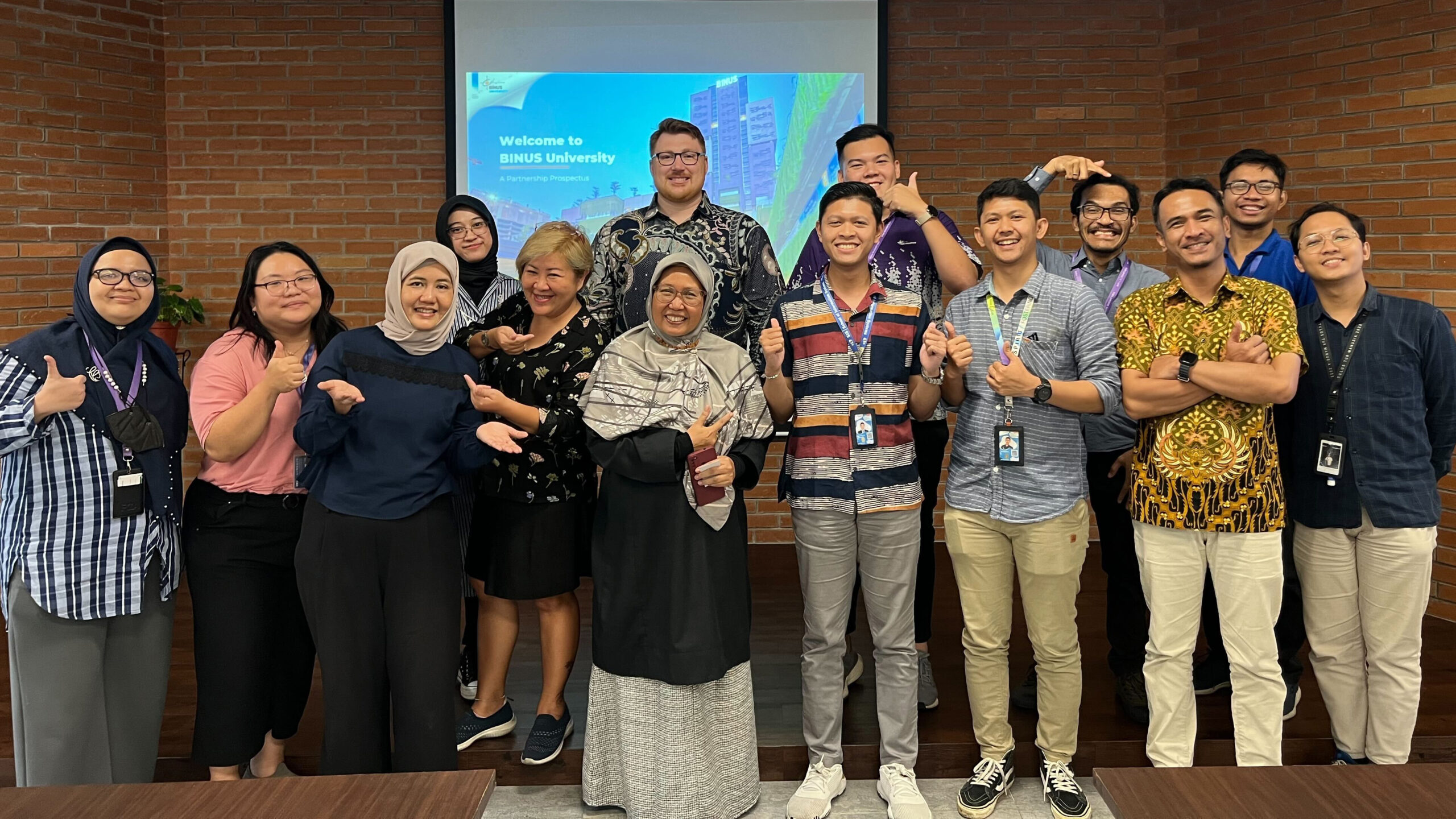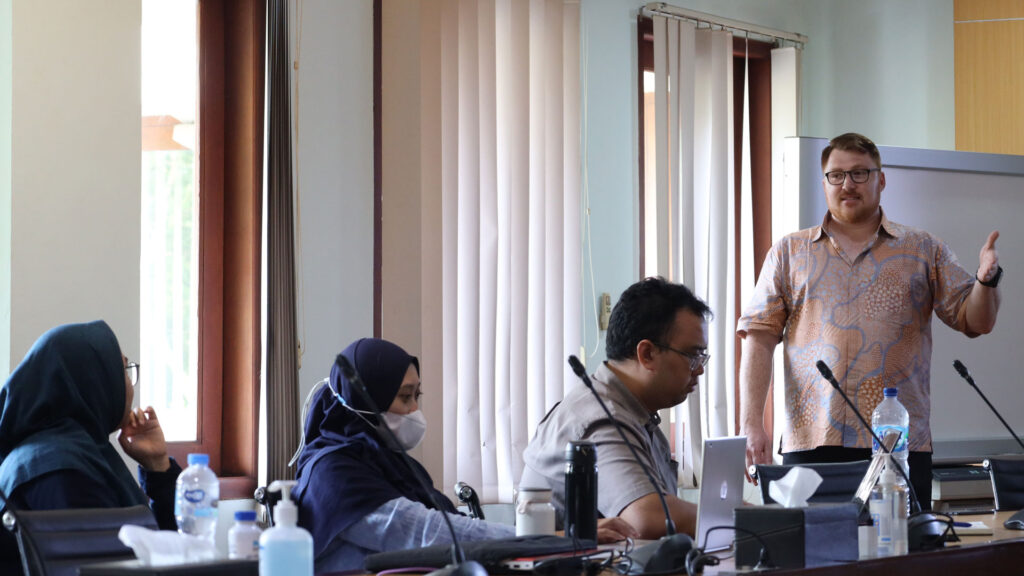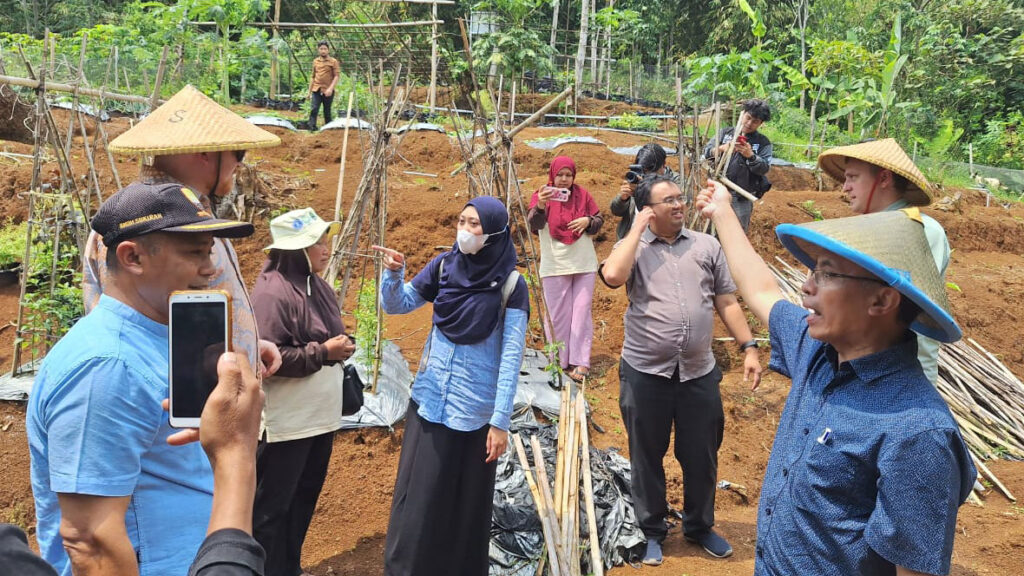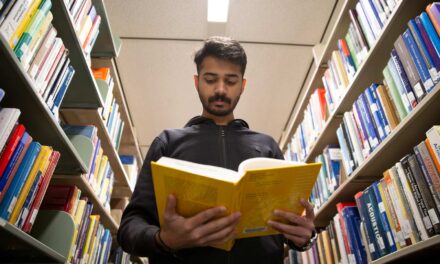
ASU launches EPICS programs in Indonesia
Engineering Projects in Community Service program prepares students for international careers while helping their communities

At its core, engineering is about improving the world for current and future generations. The Ira A. Fulton Schools of Engineering at Arizona State University takes this mission to heart for local and global communities through ASU’s chapter of the Engineering Projects in Community Service program, known as EPICS.
EPICS is an internationally recognized service learning and social innovation program. It inspires students to tackle applied projects related to community-based human and environmental challenges. These hands-on projects task students with designing, building, testing and implementing human-centered solutions for a wide variety of community partners in more than a dozen countries.
In addition, Fulton Schools Global Outreach and Extended Education helps universities in other countries, including Vietnam, build their own programs through Global EPICS. In 2023, ASU began efforts to bring this opportunity to universities in Indonesia.
“The decision to expand EPICS to Indonesia was a natural one,” says Jeff Goss, assistant dean in the Fulton Schools and executive director of Global Outreach and Extended Education. “Our colleagues in Indonesia are already working on increasing their capacity for hands-on learning and EPICS goes hand in hand with that goal. We’re excited to be able to support the learning of all participants through Global EPICS.”
This effort is supported by the United States Agency for International Development Higher Education Partnership Initiative, or HEPI. The initiative connects U.S. and Indonesian universities and industry partners to improve college graduates’ international career readiness through education and experiential learning.
Part of the initiative includes setting up EPICS programs at three Indonesian university hubs: Universitas Hasanuddin, or UNHAS, Bina Nusantara University, or BINUS University, and Institut Teknologi Bandung, or ITB. Goss says the university hubs will be prototypes for how U.S.-Indonesian program and curriculum partnerships can be scaled throughout the region.
“Engaging in the Global EPICS was more than learning equations, it was discovering the power of international collaboration and the joy of making a real impact in our community,” says Jonrinaldi Jonrinaldi, head of educational development and learning innovation at Andalas University, a HEPI affiliate university. “This program can help achieve our goal for global standards in our STEM program.”
By 2027, HEPI aims to help 4,000 students in Indonesia gain and apply soft skills through project-based learning.
EPICS teaches valuable skills
Indonesia’s higher education institutions enroll more than 8.8 million students. However, as the country’s economy advances, many graduates aren’t prepared with the skills needed to meet industry demand domestically and internationally. To be competitive in the international job market, graduates need stronger interpersonal communication, critical thinking, problem-solving and technical English skills.
“Many engineering companies are global, and cross-cultural engineering student teams provide a similar environment to the one participants will encounter when they graduate,” says Jared Schoepf, the faculty director of EPICS and an associate teaching professor in the Fulton Schools. “Global EPICS allows students to obtain another perspective on engineering and will create better-prepared graduates entering the job market.”
EPICS projects simulate a professional engineering environment. Students work on multidisciplinary teams to solve complex problems, meet deadlines, manage projects and time, and give presentations to stakeholders. Participating in EPICS also helps students gain confidence and practice applying technical knowledge learned in the classroom.
Involvement in programs like EPICS also helps universities earn accreditation from organizations like ABET, which is another outcome goal for HEPI. Accreditation is necessary for universities to be competitive and ensure graduates meet current industry needs.

Jared Schoepf visited Indonesia in December 2023 to help faculty members at Universitas Hasanuddin, Bina Nusantara University and Institut Teknologi Bandung set up EPICS pilot programs at their universities. Photo courtesy of Global Outreach and Extended Education
Starting an EPICS journey in Indonesia
To help the Indonesian university partners reap the benefits of EPICS, Schoepf traveled to the country in December to review best practices developed at ASU and brainstorm how Indonesian universities could integrate the program into their curricula.
Setting up an EPICS program involves training faculty members to master program methods, developing courses and recruiting community mentors and industry sponsors.
EPICS develops projects to benefit people in the community by working with representatives of nonprofit organizations, schools, social organizations and other groups that have engineering challenges. Community members provide social context to problems so engineering students can implement effective solutions.
Schoepf says the pilot programs at UNHAS, BINUS University and ITB will target nonprofits with engineering needs such as water purification systems, solar energy technology and software solutions. Projects are developed in the pilot program based on challenges local organizations are seeking help with and student interest at the partner universities. As the UNHAS, BINUS University and ITB EPICS programs grow, the projects will span all engineering disciplines.
To provide additional guidance on projects, EPICS partners with local engineering companies, also called project sponsors, to act as industry mentors on EPICS projects. These project sponsors are often companies and organizations that hire EPICS participants who have demonstrated proficiency in career-related skills.
EPICS projects are facilitated through a 15-week course that involves self-directed teams completing the “human-centered design process,” which includes needs assessment, design, prototype building and performance testing of teams’ solutions with feedback from the partnered community organizations.
Design reviews are another important component of the course. Students present their ideas and in-progress prototypes to peers, mentors and industry guests at several phases of the design process. Receiving and incorporating feedback encourages students to practice iterative design with continuous improvement.
The experience culminates in a showcase event in which teams demonstrate their innovative solutions to their peers, mentors, sponsors and community members. Schoepf and the program leaders at ASU encourage mentors and sponsors to present awards to teams for empathetic design, innovation, teamwork and prototyping skills.
While a course is the most sustainable method to integrate an EPICS program into a university, the program is flexible and can also be set up as a competition or design challenge to teach innovation skills to even more students than in a class or as a senior capstone project requirement for graduation.

Institut Teknologi Bandung and affiliate faculty members tour a local farm in Indonesia and learn about the current drinking water challenges. During the dry season, farmers have limited access to clean drinking water. As part of the EPICS program, university students use their engineering skills to solve problems like these for community partners. Photo courtesy of Global Outreach and Extended Education
Opportunities for ASU to make international connections
The EPICS pilot programs at UNHAS, BINUS University and ITB will pair their students with ASU students and faculty mentors. Together, they will collaborate to help Indonesian community partners and gain a deeper insight into engineering design with culturally diverse partners on a global scale.
“The students will work with ASU students and share knowledge, which is crucial in supporting and curating a global engineering background,” Schoepf says. “All major companies work globally, and allowing students across countries to work together allows all of our students to gain additional skill sets and understand user needs across cultures.”
ASU students can get involved by participating in EPICS courses FSE 104 EPICS Gold Feasibility and Planning and FSE 404 EPICS Gold: EPICS in Action, as well as study abroad programs. Faculty members at ASU are encouraged to mentor any of the student projects.
Goss says, “ASU faculty and staff will be able to learn from and work with their Indonesian counterparts and expand their awareness of community issues engineers and engineering students are working to solve around the world.”



































